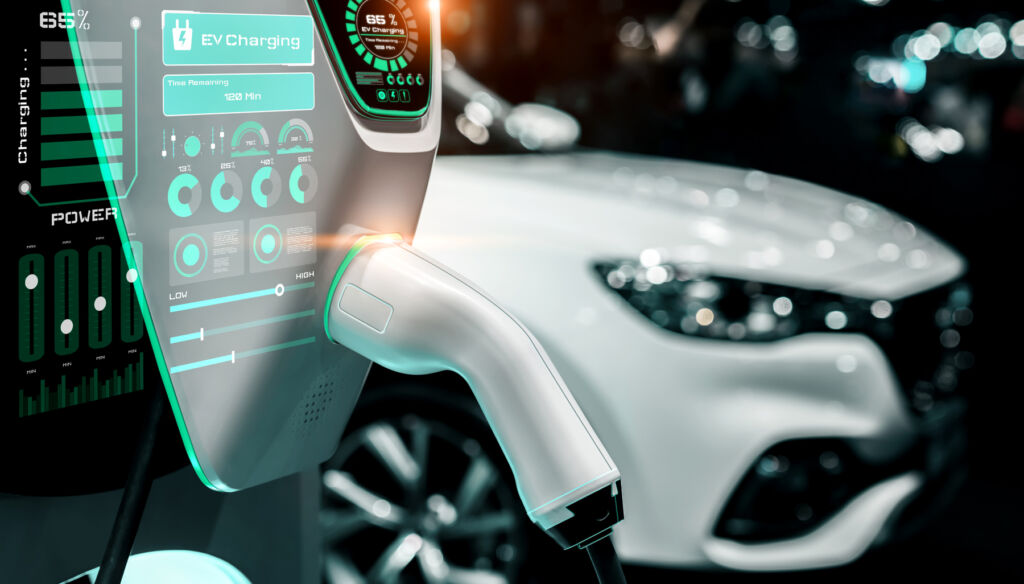
People worldwide believe that an electric battery powered car is better for the planet; is this true? In this opinion piece, Paul Godbold, the founder of Luxurious Magazine, offers his thoughts on why switching to an electric car is not the answer to the planet’s prayers.
For years, rumours have been circulating that electric cars were far from a solution to help save the planet; in fact, many high profile experts in the motoring industry have been stating the exact opposite. The first time I questioned switching to an electric car was when I read that a senior motoring adviser to the German government had broken ranks with his view that electric cars did more harm than good to the planet.

Although some reading this would think otherwise, electric power isn’t the only way forward. Forward-thinking companies such as Porsche have put forward the idea of using synthetic fuel, and the German Aerospace Centre has unveiled a far more environmentally-friendly alternative with its €15,000 hydrogen powered car.
Sadly, the way the world works is the deeper your pockets and the more voices you have, the more people will listen, and this is constantly being shown by the electric car industry and the religious fervour surrounding it.
One of the biggest problems seems to be that we constantly uncover new things and ways forward. Technology advances allow bright minds to question the reasons behind climate issues, but with science’s dogmatic stance and the close-knit way the environmental industry works, these discoveries will frequently face an uphill battle to get into the mainstream.
Imagine that someone from their home had created a solution to the climate change problem that didn’t use electricity or batteries in their current form. Would any multinational automotive manufacturer write off the tens of billions they’d invested in their manufacturing infrastructure? No, of course not. A blank cheque would be offered to the inventor, and the manufacturer would buy up the patent and quietly put it at the back of the shelf! I am not stating that this has happened, but human nature and the lure of money dictate that this is the most likely scenario.

Ask most people on the street if an electric car is better for the planet compared to a car with a traditional engine, and 99 times out of 100, people will say yes. That’s because people in the main are operating in what can best be described as the brain’s automatic pilot. This is the result of the brain being subjected to the same news and reasoning every day, causing an automatic default response.
The human brain is a rather complicated thing. On the one hand, it is the most extraordinary thing known to exist, and on the other hand, it is incredibly easy to trick and manipulate, and this, I believe, is happening to the world’s motorists with the ongoing media blitz and government drive to get them to switch to electric cars.
If you were to ask most senior executives working for a manufacturer in the motoring industry if you should purchase one of their pure electric vehicles, they will undoubtedly say yes, and it will come with the heart-string tugging addition that you’ll be helping to save the planet. However, give those same executives a truth serum, such as sodium amytal and sodium pentothal and ask them the same questions and it would almost certainly be a different answer, as deep inside the dark recesses of their brains, they have information that would indicate the opposite.
It makes sense for a senior motoring executive to default to the electric answer, as, after all, most of the prominent manufacturers have invested eyewatering sums into the production of electric vehicles, and the last thing they want is for consumers to start to question their choice. It’s not only the manufacturers who I believe are at fault; some governments are joining in with the mass formation psychosis, but this is more than likely for different reasons.

Why you should be asking questions
I believe that every motorist thinking of purchasing an electric vehicle should be asking the obvious questions, which are:
“Is a battery powered electric vehicle better for the environment than a hybrid powered car, and if so, show me the independent research.” And, “Why are some world-renowned experts stating that an electric car needs to be driven a huge number of miles before it becomes more efficient than a hybrid car?”
So why the questions?
Something that isn’t factored into the battery-powered car green data is where the electricity comes from. Instead, car buyers will be befuddled by manufacturers and dealers defaulting to exhaust emissions, which will paint a car with a combustion engine in a bad light.
To charge and power an electric car, you need electricity, and how do you get it? Yes, you’ve guessed correctly; it comes from power plants that require the use of fossil fuels. Until countries like the UK can generate almost all their electricity needs via purely natural sources, you’ll be wasting your money on buying an electric car if your goal is to help the planet today.
The manufacturing process of an electric car also needs to be considered. Electric vehicles require cobalt, lithium and nickel and the mining of these materials causes huge damage to the natural environment. A little challenge: after you’ve read this, do some research into the Demographic Republic of Congo, where batteries account for 60% of the cobalt that is mined, and I should add that the mining in that country is said to involve child slave labour.
Governments worldwide, including my own in the UK, would prefer to turn a blind eye to the above as they want people to spend. People spending money creates taxes, giving politicians the spending power they need to keep their what some people consider are overly ‘cushy’ jobs.

Another fly in the ointment
The causes of climate change have seemingly been laid squarely at the feet of us humans, and I have never subscribed to this notion. We are told that the climate/weather problems are all down to CO2 emissions, but is this the case?
In recent weeks, scientists have discovered an entirely new type of magnetic wave which surges through the earth’s core every seven years. “So what”, some of you might say? The waves result in fluctuations and changes in the planet’s magnetic field, causing the strength of the protective shield to dip.
Additionally, any new dips will be far from helpful when you factor in that the magnetic field has already been weakening over the past few hundred years, probably longer. The weakening and movement of the field do result in some unexpected regions of the planet experiencing significant climatic temperature variations, among a host of other negative things.
As things stand, governments and manufacturers are doing what we call in the UK “the best guess scenario.” They are drawing assumptions based on the data at hand and not altering their opinions as new research is being brought to the table. The climate change industry is vast, and it operates on a simple basis: if you’re not with us, you’re against us, and god forbid anyone in the industry who steps out of line with a contradictory view. They might as well announce they have the monkeypox!
The simple fact is if you want to be environmentally helpful to the planet, do not purchase an electric battery powered car thinking it will help save the planet or, at the very least, think long and hard before making any decision.

My advice for those genuinely wanting to help the planet is to purchase a small engined second-hand petrol-powered car (if you can still find one following the scrappage schemes). The best option is to buy one around five or six years old or, better still, switch to a hybrid model that can generate its own electricity to charge the batteries via braking etc. with an automatic engine stop/start facility.
Many of the world’s environmental problems have an obvious solution. Too much plastic in the sea? Simple, the world should make fewer goods using plastic. The answer to halting the decline in indigenous animal species? Protect their natural habitats, use less-harmful pesticides and protect green-belt land. However, what is not obvious is the solution to the planet’s warming and climate change because the people with the loudest voices and influence cannot definitively state the underlying cause and take the easy route which is to blame people. Unfortunately, Occam’s Razor does not apply in this case.
The result of the constant drum-banging by environmentalists, coupled with the ongoing media barrage by broadcasters and manufacturers will result in people being forced to purchase what is high-priced technology to alleviate consciences and massage some over-inflated egos, which, when all is said and done will not change very much at all.
Research what I have written in this piece, and when you have, ignore what others might tell you, instead do what YOU feel is the right thing for the planet.
Please note that the opinions above do not reflect the views of everyone involved with Luxurious Magazine.
Read more motoring reviews and features here.
![]()




You must be logged in to post a comment.